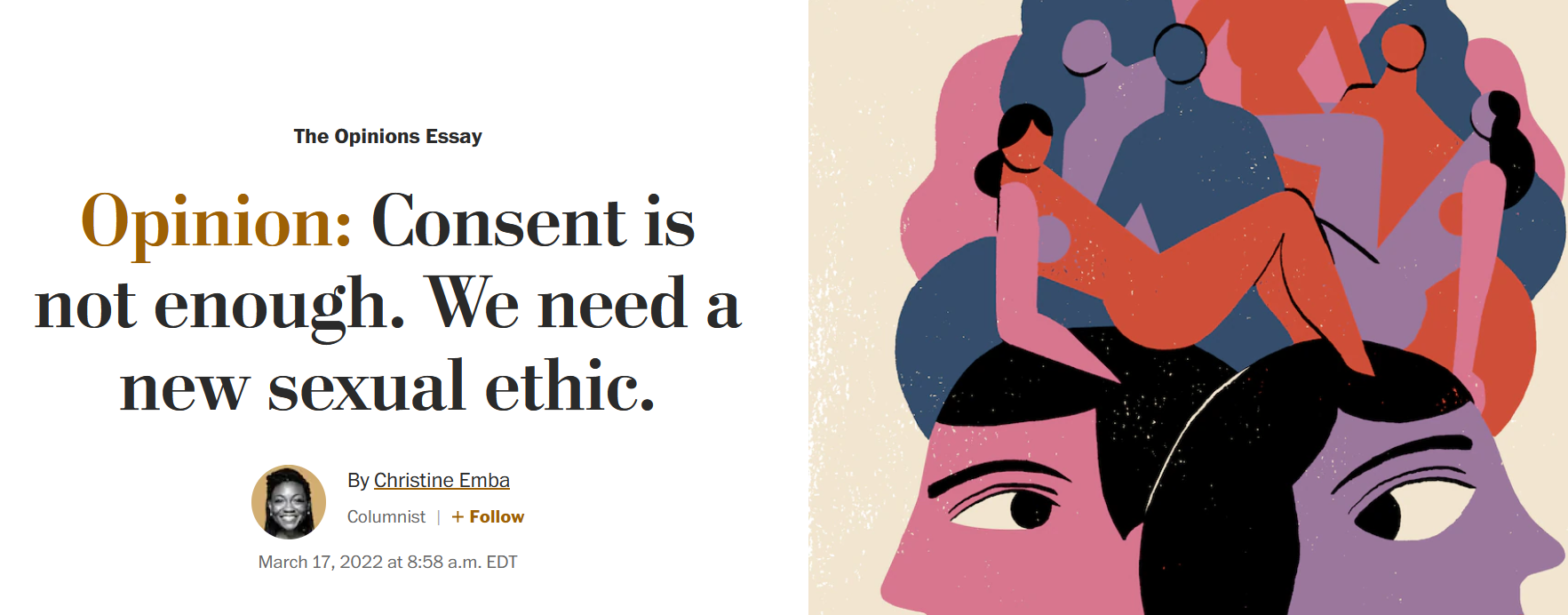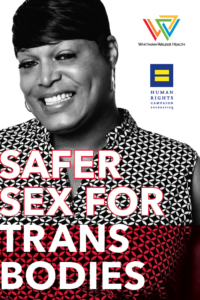When the Washington Post talks about consent …they should really interview a sex educator.
…they should really interview a sex educator.
I appreciate this article, the attempt it makes. The premise is on point: we do need a nuanced way of communicating sexual desire and consent. We do need to acknowledge the murky ground between enthusiastic sexual engagement and straight out assault. And we need new cultural and interpersonal scripts for how to navigate those situations.
But when a non-sex educator writes a story like this, it falls into some predictable traps.
- Making porn the Boogeyman. It’s a tired 1970s trope that pornography is giving people ideas about “hardcore” sex. People have been choking their partners and cumming on their faces and putting large objects in their butts for a LONG TIME. Porn didn’t introduce these acts and there’s good reason to believe that it didn’t increase their prevalence either, just like violent crime doesn’t correspond with video games like all the moms in the 90s thought.
- This article erased the pleasure centered activism of queers, people of color, and sex workers that have been saying this stuff for decades. I look to people like Audre Lorde and Annie Sprinkle who were working on these topics in the 70s and 80 for evidence that this conversation is not new, it has simply been actively ignored for being politically inconvenient and socially marginalized. Jacqueline Freedman, who literally brought the “Yes Means Yes” paradigm into the public consciousness (check out her book for all the nuance) was using the thesis that Yes was an expression of complex desire and agency that required grappling with gender roles, societal expectations of politeness and so much more. None of this is new. Y’all just weren’t listening.
- Lastly, this article presents sexuality outside of the socioeconomic realities that most shape it. Partnered sex of all kinds has gone down across demographics since 2009. There’s no one cause of this decline, but it is undoubtedly intertwined with increasing income inequality, higher rates of economic stress, housing instability, and mental/physical health stressors. People aren’t having good sex (or any sex in many cases) in part because they are broke, depressed, and fighting to keep their heads above water in am increasingly difficult to navigate world. As much as I want our society to access a deeper, more nuanced approach to sexual consent, I want to talk about how to navigate that within the context of a world that is frankly fucking us in a lot more awful ways.
Thinking about writing about sex yourself? Before you do, key into community. Take a look at some of the writing by these awesome folks about sexual ethics, consent, and community in kickass, nuanced ways. You’ll probably learn a thing or two.
- Aida Mandulay, LICSW “What Kind of Relationship Suitcase Packer are You” (and other blog posts)
- Audre Lorde “Uses of the Erotic: The Erotic As Power”
- Dr. Tracie Q. Gilbert “The Sex Ed of Blackfolk” Podcast
- Carol Queen, “Real Live Nude Girl”
- Jessi Fischer, MA [The Sexademic] “No Pleasure in the Ghetto” (and other blog posts)
- Justin Hancock, “Have You Seen that Tea and Consent Video?”
0



